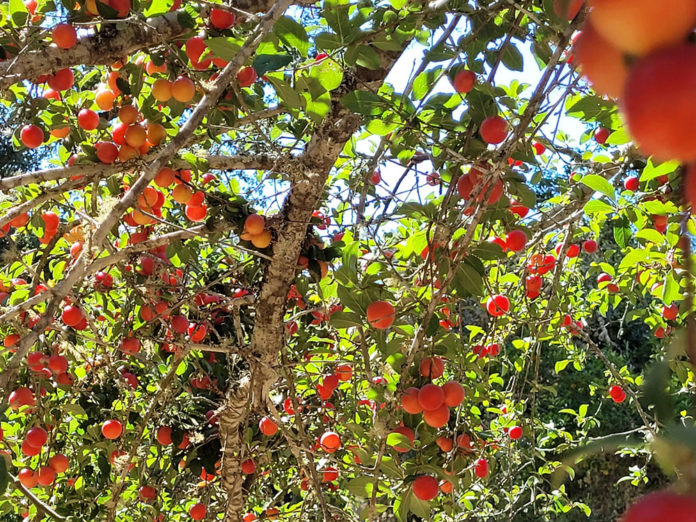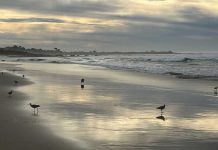
By Pierre Ratte
Prunes are generally an unsung fruit, but Healdsburg is singing the praises of its Prune Packers’ tie-breaking series over the Humboldt Crabs Friday night to win the Pacific Empire League. It marks the fifth consecutive championship for the Packers in a collegiate wooden bat summer league.
The Packers’ domination in this league under Joey Gomes’ leadership is impressive. This year, players hit 74 home runs, a team record. The hitting power of the Packers made for exciting games. Dingers regularly going over the fence. Ouch to the parked car or the driver unwittingly heading north on University.

Pitching was good, but the Packers leaned in on their hitting for their wins. Hitting can be streaky. So it was with relief that the capacity crowd saw the Packers rack up an early 5-0 lead in the championship game leading to a 9-4 Packer championship.
Division 1 (D1) collegiate baseball players from power schools are consistently choosing to play in Healdsburg, including players turning down Cape Cod League offers, which historically has the best collegiate talent. The professional roster emanating from the Packers is similarly impressive, with 80 alums and 8 draftees in 2024.
Go Packers! See you next summer. If y’all win again, we might need to invent a new term—double three-peat: three championships in the California Collegiate League and three championships in the new Pacific Empire League. Hat-tip to America’s favorite pastime.
Fun facts: The picture above shows a small plum tree from a historic orchard out Mill Creek way. Reportedly, plums first came to the Alexander Valley in the mid-1800s with Cyrus Alexander. By the late 1800s, plum farming and prune production grew rapidly. In 1924 prunes were the area’s leading cash crop, beating apples and hops. Prune orchard growth led to drying facilities, such as those now used for self-storage at Sun Industrial on Healdsburg Avenue. After World War II, the prune market started giving way to vineyards. Winemakers gained traction after Prohibition and the war, though it wasn’t till the late 1970s and ’80s that grapes overtook prunes as the area’s leading cash crop.
Louis Pellier has the distinction of being the “Father of California Prunes” and the “Prune King.” He introduced prune trees from France to the San Jose area in 1850. Pellier Park honors his contribution.








